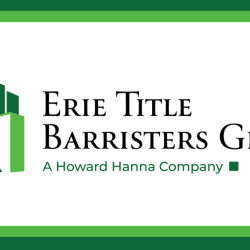Whether you’re buying your first home or selling your tenth, the real estate purchase contract is the backbone of any property transaction. It’s where expectations become enforceable agreements—and what ultimately ensures a successful, legally sound transfer of ownership.
But what does this important document actually cover? What clauses and contingencies should you look out for? And how can working with a trusted real estate professional help you avoid costly mistakes?
In this guide, we break down the essential components of a real estate purchase contract, offer tips for both buyers and sellers, and explain how Howard Hanna Real Estate Services provides unmatched support every step of the way.
What Is a Real Estate Purchase Contract?
A real estate purchase contract is a legally binding agreement between a buyer and a seller outlining the terms and conditions for the transfer of real property. Once signed by both parties, it becomes the official record of the deal and governs how and when the sale will proceed.
This contract includes everything from the purchase price to contingencies, deadlines, and disclosures. It serves as both a roadmap to closing and a legal safeguard in case disputes arise.
At Howard Hanna, our experienced agents walk clients through every line of the contract to ensure expectations are aligned and risks are minimized.
Why the Purchase Contract Matters
While buying or selling a home is often an emotional experience, the contract is what turns that excitement into reality. Here’s why it’s so critical:
- Legal protection: Ensures both parties are bound to the terms.
- Clarity of expectations: Defines what’s included in the sale, key deadlines, and payment terms.
- Contingency management: Outlines conditions under which the deal can be canceled without penalty.
- Dispute resolution: Acts as a point of reference if disagreements arise.
Without a well-drafted, thoroughly reviewed contract, buyers and sellers risk financial loss, legal disputes and unnecessary stress. Howard Hanna agents anticipate potential sticking points and guide clients through negotiations with confidence.
Essential Elements of a Real Estate Purchase Contract
- Identifying Information
Includes full legal names of the buyer(s) and seller(s), and often their contact information. Accuracy is critical. - Property Details
Includes full address, legal description, lot number and parcel or tax ID to ensure there is no ambiguity. - Purchase Price and Payment Terms
Outlines the agreed-upon price, payment method (e.g., cash or mortgage) and any down payment or earnest money. Howard Hanna offers in-house mortgage services with competitive rates to streamline this process. - Earnest Money Deposit
This good faith deposit, typically 1% to 3% of the purchase price, shows the buyer’s commitment. It’s held in escrow and applied toward the down payment or closing costs. - Contingencies
Common contingencies include:
- Financing contingency: Allows the buyer to cancel if financing falls through.
- Home inspection contingency: Permits negotiation or cancellation based on the results of an inspection.
- Appraisal contingency: Ensures the home is valued at or above the agreed sale price.
- Title contingency: Verifies the title is clear.
- Home sale contingency: Conditions the purchase on the sale of the buyer’s current home.
Howard Hanna agents help clients create offers that balance protection and appeal, especially in competitive markets.
- Closing Date and Possession
Specifies the target closing date—typically 30 to 60 days—and when the buyer will take possession of the home. - Inclusions and Exclusions
Clarifies which fixtures and personal property are included (e.g., appliances, lighting, window treatments). Clear documentation avoids post-sale disputes. - Seller Disclosures
In most states, sellers must disclose known issues like roof leaks, water damage, or foundation problems. Howard Hanna agents assist in preparing and reviewing disclosure statements. - Default and Termination Clauses
Explains legal remedies if either party fails to fulfill their obligations, such as forfeiting earnest money or pursuing legal claims. - Signatures
A contract isn’t enforceable unless signed and dated by both parties. Many states require initials on each page as well.
What Happens Between Signing and Closing?
Once the contract is signed, the deal enters the escrow phase. Key steps include:
- Inspections: The buyer hires professionals to assess the home’s condition.
- Negotiations: May reopen if repairs are needed.
- Appraisal: Required by lenders to ensure the home is worth the purchase price.
- Title Search: Confirms the title is free of liens or disputes. Barristers Title & Escrow, a Howard Hanna partner, ensures a smooth process.
- Final Mortgage Approval: Lenders finalize underwriting and issue a clear-to-close.
- Final Walkthrough: Typically done 24 to 48 hours before closing.
- Closing Day: All documents are signed, funds are transferred, and ownership is officially conveyed.
Howard Hanna’s full-service team—including agents, mortgage professionals and title experts—works together to streamline this phase and reduce stress.
Legal Considerations and Common Pitfalls
- Skimming the Contract
Every clause matters. Always review the full contract with your agent. - Missing Deadlines
Contracts have strict timeframes for inspections, financing and other milestones. Missing them can jeopardize the deal. - Relying on Verbal Agreements
Only written, signed terms are enforceable. - Waiving Contingencies Without Understanding the Risks
This can strengthen an offer but leaves the buyer more vulnerable. - Going It Alone
Real estate professionals are trained to catch the small details that can make a big difference. Never underestimate the value of expert guidance.
How Howard Hanna Makes It Easier
With Howard Hanna, you get more than a real estate agent—you get an integrated team:
- Experienced real estate professionals with local market knowledge
- In-house mortgage services for faster approval and better coordination
- Title and escrow services through Barristers Title & Escrow
- Home warranty and insurance options for long-term protection
- One-stop shopping for a seamless experience from start to finish
From the first showing to the final signature, we’re committed to your success.
Frequently Asked Questions (FAQs)
Q: Can I back out of a real estate contract after signing it?
A: Yes, but only under specific conditions—typically related to contingencies. Otherwise, you may lose your earnest money or face legal action.
Q: Who writes the purchase contract?
A: The buyer’s agent typically prepares the initial offer using standard legal forms. Your Howard Hanna agent ensures the contract is tailored to your needs.
Q: What happens if the seller breaks the contract?
A: The buyer may be entitled to legal remedies, including damages. Your Howard Hanna agent and legal team will help you navigate your options.
Q: What is a counteroffer?
A: A counteroffer is a response to an initial offer, usually involving modified terms. The buyer can accept, reject, or propose another counter.
Q: Does Howard Hanna help with relocations?
A: Absolutely. We have relocation specialists and a wide geographic footprint to support out-of-state moves.
A real estate purchase contract is more than paperwork—it’s the foundation of your home transaction. Understanding its contents and consequences is essential.
At Howard Hanna Real Estate Services, we empower clients with knowledge, protection and peace of mind. With expert agents, full-service mortgage and title teams, and a legacy of trust, we help you move forward with confidence.










